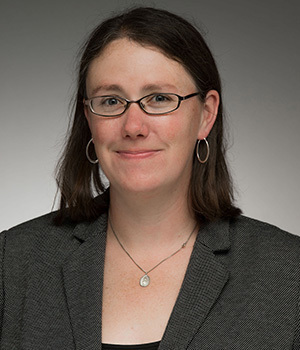 Meghan Sullivan
Meghan Sullivan
Meghan Sullivan, a University of Notre Dame professor of philosophy, together with faculty from Wesleyan University and Fordham University, has won a National Endowment for the Humanities grant to support a two-week NEH Summer Institute on teaching philosophy as a way of life.
The program — Reviving Philosophy as a Way of Life — will gather 25 faculty from across the country who are interested in developing courses that explore the concrete recommendations that various philosophical movements propose for achieving the good life. The summer institute will be held July 9-20, 2018, at Wesleyan.
“Philosophy is often approached as an abstract discipline, but many great philosophers of history saw themselves as giving practical advice on how to achieve happiness — practices and worldviews that were meant to directly improve the lives of those who immerse themselves in the systems,” said Sullivan, who teaches the introductory philosophy course God and the Good Life at Notre Dame.
“We want students to experience philosophy by studying the practical advice of these great thinkers and considering how these ‘ways of life’ succeed or fail.”
The $137,000 award is part of $39.3 million in grants recently awarded by NEH to 245 humanities projects across the country.
Faculty will spend half of the institute studying the key teachings of Stoicism, Buddhism, Kantianism and other major movements in sessions led by nationally recognized senior scholars. The remainder will be dedicated to finding effective and innovative ways to help undergraduate students “try out” these teachings.
Institute participants aim to find new ways to help students approach their lives more philosophically.
The project is led by three senior faculty — Sullivan; Stephen Grimm, a professor of philosophy at Fordham; and Stephen Angle, a professor of philosophy and east Asian studies at Wesleyan — who are known for teaching groundbreaking “way of life” courses.
In God and the Good Life, students have the opportunity to consider, discuss and debate the big questions surrounding what makes a life moral and what makes a life meaningful. The course tackles such issues as what justifies our beliefs, whether we should practice a religion and what sacrifices we should make for others.
Using classic philosophical arguments, real-world case studies and interactive digital tools, students search for answers and explore their beliefs in both large group discussions and small sustained dialogue groups.
Sullivan, who also serves as director of the University’s philosophy requirement, researches philosophical problems concerning time, modality, rational planning and religious belief. She has just finished a book, “Time Biases: A Theory of Rational Planning and Personal Persistence” (with Oxford University Press). “Time Biases” develops a theory called “temporal neutrality” regarding how rational individuals plan for the future and what they hope for in their lives.
Originally published by at news.nd.edu on August 08, 2017.